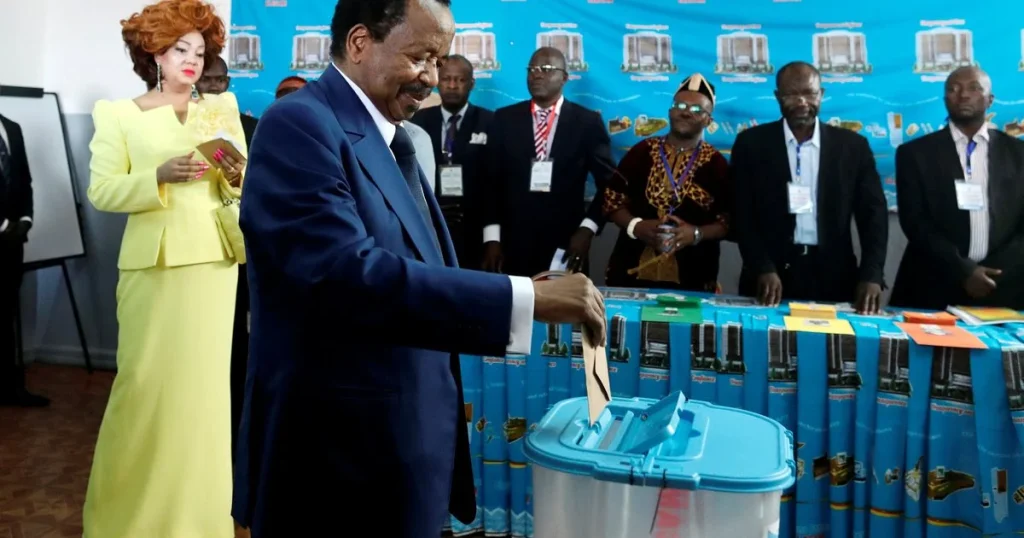On October 20, 2025, eight days after Cameroon’s presidential election, the National Vote Counting Commission released preliminary results, declaring incumbent President Paul Biya the winner with over 53% of the vote.
His main challenger, Issa Tchiroma Bakary of the Cameroon National Salvation Front, trailed with 35%. The announcement has ignited controversy, with opposition leaders rejecting the figures and alleging foul play.
The Constitutional Council is set to confirm official results by October 26. If upheld, Biya, 92, would extend his 42-year presidency, solidifying his status as one of Africa’s longest-serving leaders.
Opposition Rejects Outcome
Issa Tchiroma, 79, has fiercely disputed the results, claiming victory since October 14. In a statement two days after the election, he said, “The people’s decision is clear and must be honored.” On October 19, Tchiroma released his own vote tally, asserting he secured 60% of the ballots. He criticized the official count as flawed and demanded greater transparency in the process.
Tchiroma’s supporters have rallied behind his claims, accusing the government of manipulating the vote. The dispute has deepened public mistrust in Cameroon’s electoral system, which critics argue favors the ruling party.
Protests and Clashes Erupt
The contested results have sparked unrest across Cameroon. Demonstrations broke out in major cities, with protesters alleging electoral fraud and calling for justice. In some areas, rallies turned violent, leading to confrontations with security forces.
Reports of injuries and arrests have heightened tensions, raising fears of further escalation as the final results loom.
The protests reflect frustration with Biya’s long rule, which opponents say has stifled dissent and economic progress. Urban centers like Douala and Yaoundé have seen the largest gatherings, with marchers demanding a fair electoral process.
Biya’s Long Reign
Paul Biya, in power since 1982, leads the Cameroon People’s Democratic Movement (CPDM). His 42-year tenure has brought stability to some, but critics point to authoritarian tactics, economic stagnation, and ongoing separatist conflicts in the Anglophone regions.
At 92, Biya’s health and capacity to govern are frequent topics of debate, yet his party maintains a strong grip on power.
Tchiroma, a former ally turned rival, has galvanized younger voters with promises of reform. His challenge, though bold, faces hurdles in a system where the CPDM’s influence over institutions, including the electoral commission, is widely acknowledged.
Electoral Integrity in Question
Cameroon’s elections have a history of controversy, with past votes marred by allegations of rigging and voter suppression. The current dispute over preliminary results echoes these concerns, with Tchiroma’s camp calling for independent verification.
The Constitutional Council, tasked with finalizing the outcome, is often viewed as aligned with Biya’s government, further fueling skepticism.
International observers have called for calm and transparency, urging all parties to respect the legal process. However, the lack of trust in institutions complicates efforts to maintain peace.
What Lies Ahead
As Cameroon awaits the Constitutional Council’s ruling, the nation stands at a crossroads. A confirmed Biya victory could trigger more protests, while a shift in favor of Tchiroma seems unlikely given the CPDM’s dominance.
The unrest highlights deep divisions over governance and democracy in Cameroon.
Citizens and global watchers hope for a resolution that avoids further violence. The election’s outcome will shape Cameroon’s future, testing its ability to balance stability with demands for change. For now, the focus remains on ensuring a transparent process that reflects the will of the people.
Russian Court Sentences Ukrainian Soldiers in Controversial Trial




















